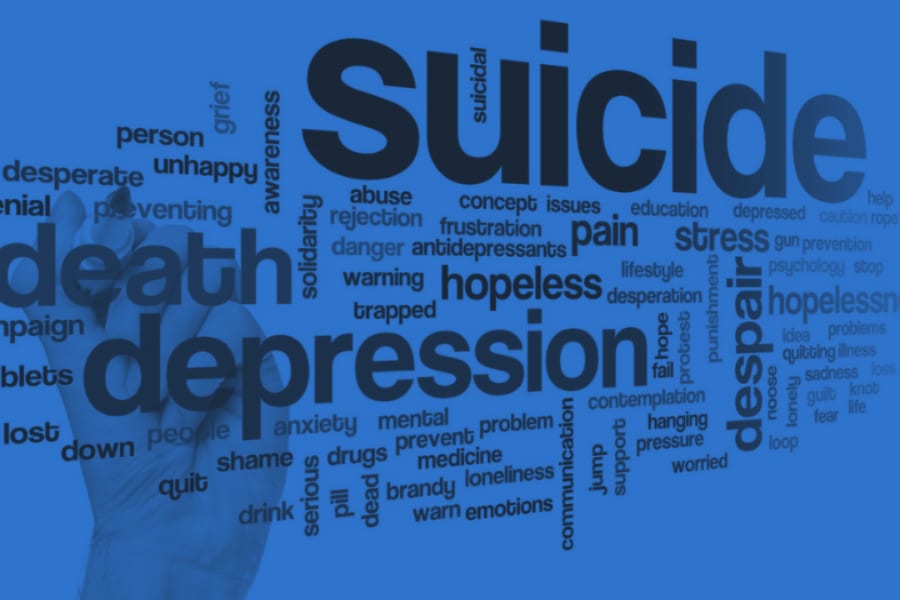You’re probably well aware of the growing opioid crisis in the United States. Over two million people have an addiction to some form of the drug and overdoses have been a leading cause of accidental death. Alarmingly, the suicide rate in the US has also been on the rise – the numbers growing by 33% between 1997 and 2017. It may not be coincidental that these numbers have reached a 30 year high, there may be a correlation between opiate addiction and suicide.
While there has clearly been a link between addiction and suicide in general, more recent research indicates there may be a greater risk associated with opiate addiction and suicide. If you are currently addicted to opiates and are having thoughts of deep depression call us now for help! We’re at 765-358-7320 24 hours a day!
Addiction and Depression
Depression and addiction can be a vicious cycle. Addiction can be the result of depression, but just as likely, depression can be a result of addiction. Once one has started, the other is often not far behind. Some addicts begin using drugs to cope with depression or anxiety not realizing that the temporary relief they find ultimately magnifies the feelings of sadness, helplessness, or loneliness and increases the probability of addiction.
Once addiction has set in, the drug begins to be a driving force that can lead to lying, stealing, and taking other extreme measures to support their habit. This may lead to feelings of worthlessness, especially if they find themselves without any support system. In some instances, rehabilitation either seems like it’s not an option or it’s too difficult an option. Suicide may seem like the only solution to end a lifestyle that isn’t sustainable. Addicts may even see it as a way to lessen the burden they feel they’ve caused family or friends. Which is why going to medical drug detox as soon as possible is important.
A team from the University of Michigan recently used data from the CDC to analyze the relationship between opiate addiction and suicide. Based on this data, they were able to conclude that more than 33% of deaths related to opioids in 2017 were suicides. Of this group, rates were highest for white men and American Indian/Native American men.
While more research is needed on opiate related suicide, evidence suggests that the likelihood of attempted suicide increases by 75% for those using opioids. Warning signs of those contemplating suicide include reckless behavior, avoidance of social interaction, expressing a desire to die, agitation, insomnia, losing interest in hobbies or activities, and poor work or school performance.
Opiate Addiction and Depression Preventative Measures
Recognizing the signs of opiate addiction and depression are just the first steps in preventing suicide. Addiction is a chronic disease that needs physical and emotional support to avoid a relapse. Finding a treatment center that offers both as well as a path for healthy sustainable living is crucial. Denial, fear of failure, and withdrawal symptoms can be huge hurdles to treatment.
There are several medicines available now to help patients cope with the difficulties of withdrawal. Research shows that using these medicinal treatments has resulted in a more successful recovery than treatment without.
There are opportunities, however, for preventative measures that can start well beforehand. It all comes down to education and making resources available to healthcare providers, patients, and the general public. More people need to be aware of the dangers of opiate use and abuse. We need a greater public awareness of opiate addiction and suicide. Some other helpful measures include screenings, assessments to see if patients are at risk, regularly scheduled training and workshops, and easier access to community and medical support.
We Can Help You Overcome Opioid Addiction and Suicide Thoughts
Opiate addiction and suicide are serious problems that we all can help prevent. Give Bridges of Hope a call today for help. We’re at 765-358-7320, we’re here and waiting to help.


 Verify Insurance
Verify Insurance
 Toll Free Call
Toll Free Call